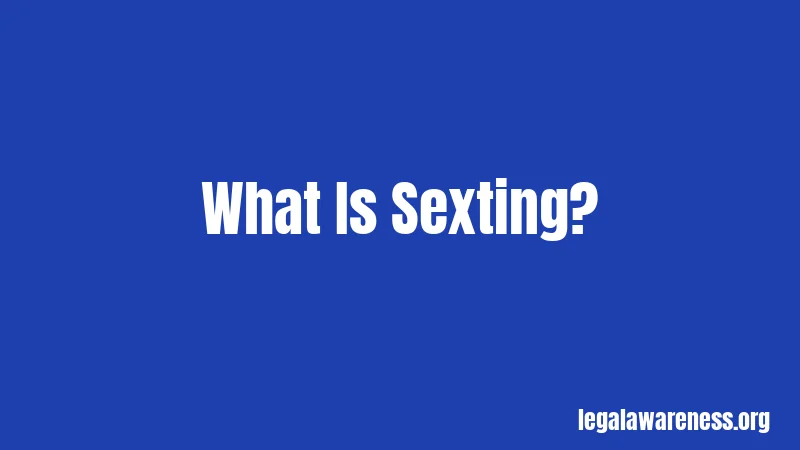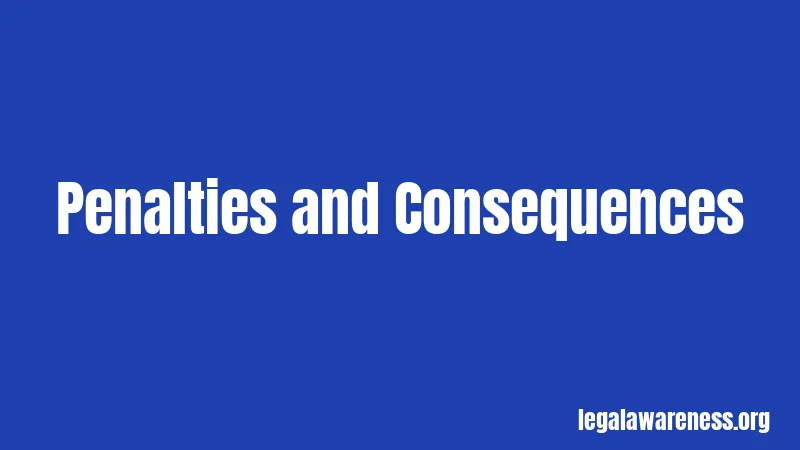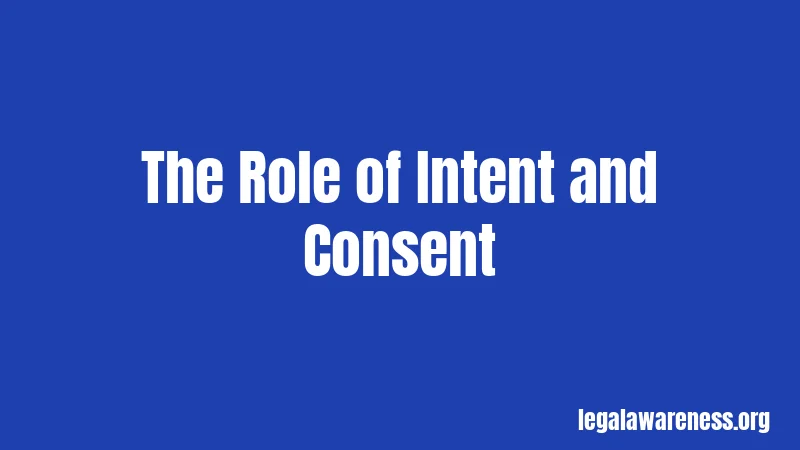Sexting Laws in Pennsylvania (2026): What Teens and Parents Must Know
You’ve probably heard about sexting. Chances are, you’ve never really understood the legal side of it. Here’s the thing: Pennsylvania takes sexting seriously. Really seriously. The state has some of the strictest laws in the country, and the penalties can be surprisingly harsh. Even teenagers can face charges that affect their entire future.
Stay with me here. This isn’t meant to scare you, but you need to know the facts. Whether you’re a teen, a parent, or just someone curious about the law, this guide will explain exactly what’s illegal in Pennsylvania and what could happen if you break these rules.
What Is Sexting?

Okay, let’s define this clearly. Sexting means sending, receiving, or possessing sexually explicit images or videos. Usually, it happens through text messages, social media apps, or other digital platforms. The images or videos typically show nudity or sexual activity.
Here’s what makes it complicated: the law treats sexting very differently depending on who’s in the pictures. If both people are adults and agree to it, that’s one thing. If a minor is involved? That’s a completely different story, and Pennsylvania law gets strict fast.
Basic Sexting Laws in Pennsylvania
What Makes Sexting Illegal
In Pennsylvania, sexting becomes illegal when minors are involved. A minor is anyone under 18 years old. This is the key point: you can’t send, receive, or possess sexual images of anyone under 18. That includes pictures of yourself if you’re under 18.
Think of it like this: the law treats these images as child sexual abuse material. That’s literally what it’s called in the legal system. Even if you think you’re just joking around or being playful with someone your own age, Pennsylvania law doesn’t see it that way.
Not sure what counts as a sexually explicit image? The law covers any picture or video that shows genitals, breasts, or sexual activity. Basically, if it’s showing private body parts in a sexual context, it counts.
The Crime of Manufacturing and Distributing
Making and sending sexual images of yourself is called “manufacturing” child sexual abuse material. Yep, you read that right. If you’re under 18 and you take a naked picture of yourself, you’ve technically committed a crime in Pennsylvania. Sending that picture makes it even worse.
This sounds harsh, but Pennsylvania law was written before smartphones became common. The law doesn’t always account for the fact that teenagers are the ones taking and sharing these images.
Distributing means sharing the image with someone else. Sending a sext to one person is distributing. Sharing it in a group chat? That’s distributing it multiple times. Each person you send it to could be considered a separate violation.
Honestly, this is the part most people miss. You could face serious charges just for sending one picture to one person.
Receiving and Possessing Sexts
What if you didn’t take the picture, but someone sent it to you? In Pennsylvania, receiving and keeping these images is also illegal. You can’t ask for them, you can’t accept them, and you definitely can’t keep them on your phone.
Here’s where it gets tricky: even opening a picture counts as possessing it. If someone sends you a sext and you see it, you’ve technically broken the law. If you keep it in your phone, that’s a more serious violation. If you save it to the cloud or back it up, the prosecution will argue you intentionally possessed it.
Confused about the difference between receiving and possessing? Let me break it down. Receiving just means it arrived on your phone. Possessing means you have it and you know it’s there. Possessing is the more serious charge because it shows you meant to keep it.
Penalties and Consequences

For Teenagers
Okay, pause. Read this carefully. The penalties for minors sexting in Pennsylvania can be surprisingly severe.
If you’re under 18 and you create, send, or possess sexual images, you can face criminal charges. The exact penalty depends on what you did and whether it’s your first offense.
For a first offense of creating or sending a sexual image, you could face up to 10 years in prison. Wait, that’s probably shocking. Let me explain. That’s the maximum penalty. Most first-time teenage offenders don’t serve that much time, but the law allows for it.
The more common penalty is probation, fines, and mandatory sex offender registration. A fine could range from $1,000 to $10,000. You’d have to register as a sex offender. That means you’d be on a list that the public can access.
Think of it like a felony on your permanent record, but with extra consequences. A sex offense conviction can affect your college applications, job prospects, housing options, and relationships for the rest of your life.
Receiving or possessing a sexual image is slightly less serious. You could face up to 5 years in prison for a first offense. Still serious, still life-changing.
For Young Adults (Ages 18-25)
This one matters if you’re dating someone close to your age. If you’re 18 and your boyfriend or girlfriend is 17, you need to pay attention.
Pennsylvania law has an “age gap” provision for some crimes. However, sexting doesn’t get this protection. The law treats sexual images of minors the same way regardless of the sender’s age. If your partner is 17 and you’re 18, sending them a sexual image could make you a criminal. You could be charged as an adult, even though you’re only one year older.
That could mean felony charges. Felonies stay on your record forever. Employers can see them. It affects your ability to rent apartments or get loans.
For Adults (Age 18 and Older)
For adults who sext with other adults, the law is much more lenient. If both people are adults and they consent, you’re generally not breaking any laws.
However, if you’re an adult who solicits, receives, or possesses sexual images of minors, the penalties jump dramatically. You could face 5 to 20 years in prison. You’d have to register as a sex offender. Federal charges might also apply.
Adults who engage minors in sexting face the harshest penalties because the law sees them as predators. The system assumes they’re exploiting the minor.
Pennsylvania’s Youth Sexting Law
Here’s where it gets interesting. Pennsylvania does have a special law specifically for teenagers sexting each other. It’s not a perfect solution, but it offers some protection.
Under Pennsylvania law, if you’re a minor and you created the image, and it only involves minors, you might be charged under a less serious statute. Instead of the child sexual abuse material charges, you could face a misdemeanor.
But hold on, this part is important. You have to meet certain conditions. The image can’t be distributed. You can’t have forwarded it to anyone else. You have to have taken it yourself. If even one of those conditions isn’t met, you’re back to facing the original felony charges.
A misdemeanor for sexting is still serious. You could face up to one year in jail and a fine up to $2,500. You might have to do community service. Depending on the details, you could still have to register as a sex offender.
It’s less severe than a felony, but it’s not a slap on the wrist either.
The Role of Intent and Consent

You’re probably thinking: “What if both people wanted to send pictures to each other?” Good question.
Here’s what most people get wrong: consent doesn’t matter to the law. In Pennsylvania, you can’t legally consent to creating or receiving sexual images as a minor. That’s true even if you’re the one asking for them.
If you’re 16 and you ask your 16-year-old friend to send you a picture, and they do, you’re both breaking the law. The fact that you asked doesn’t protect you. The fact that you wanted it doesn’t protect them.
This part can be tricky, honestly. Many teenagers don’t realize that consent can’t override the law when minors are involved. The law exists to protect minors, even from themselves.
Cyberbullying and Sextortion
Now, here’s where it gets worse. Sometimes sext images are used as a weapon.
Sextortion happens when someone threatens to share your intimate images unless you send them money, more pictures, or sexual favors. This is blackmail. It’s illegal. It’s also devastating for the victim.
Sextortion can involve an adult threatening a minor or even minors threatening each other. In Pennsylvania, both the creation of the image and the sextortion itself are crimes.
Cyberharassment also applies to sexting situations. If someone shares your sext without permission, that’s harassment. You could potentially charge them with a crime. You’d definitely have grounds for a civil lawsuit.
If you’re being sextorted or harassed with your own intimate images, you don’t deserve shame. You’re the victim. Report it to police, tell a trusted adult, and consider contacting the National Center for Missing and Exploited Children.
How to Protect Yourself
The Best Strategy
Honestly, the safest choice is not to create or send sexual images at all. I know that sounds like your parents talking, but legally speaking, it’s true.
If you’re a teenager, understand this: the consequences of sexting can affect you for decades. A felony record follows you to college, job interviews, housing applications, and beyond. Sex offender registration puts you on a public list.
The risk is real, and it’s permanent.
If You Receive an Unsolicited Sext
If someone sends you a sexual image without asking, delete it. Don’t keep it. Don’t forward it. Definitely don’t show it to your friends.
If an adult is sending you sexual images, tell a trusted adult immediately. This is predatory behavior. Contact the National Center for Missing and Exploited Children at CyberTipline.org. Call the police.
If another minor is sending you unwanted sexual images repeatedly, tell a parent or school official. They can help you set boundaries and document the harassment.
If You’ve Already Sent or Received Sexts
Okay, you messed up. What now? Don’t panic, but do act.
First, delete any sexual images from your phone, cloud storage, and backups. Ask anyone you sent images to delete them. They probably won’t admit it, but ask anyway.
Second, talk to a trusted adult. I know that’s scary. A parent, school counselor, or mentor can help you figure out your next steps.
Third, contact a lawyer if police get involved. You have the right to legal representation. Many public defenders specialize in these cases. Don’t try to handle this alone.
Fourth, don’t take this lightly. This isn’t a minor issue. Getting legal help early can make a huge difference in the outcome.
What Parents Need to Know
If you’re a parent reading this, here’s what matters: talk to your teenagers about sexting. Not as a punishment, but as a conversation.
Explain that the law treats these images seriously. Explain that they can face criminal charges, not just school discipline. Explain that the consequences follow them into adulthood.
Set clear expectations about phone use. Many experts recommend waiting until age 13 for a smartphone. If you do give your teen a phone, set parental controls. Monitor their activity.
Most importantly, create an environment where your teen can talk to you about problems. If they get a sext or face pressure to create one, they should feel comfortable coming to you without fear of immediate punishment.
You’re the adult. Your job is to help them navigate these situations safely, not to shame them.
Frequently Asked Questions
Is it illegal to sext with someone exactly my age? Yes, in Pennsylvania. Age of the person taking or sending the picture is what matters, not the age of the recipient. If you’re both 16, it’s still illegal.
What if I send the picture just to one person I trust? It’s still illegal. The number of people who receive it doesn’t change the crime. Sending it to one trusted person is still distributing child sexual abuse material.
Could I go to jail for this as a teenager? Yes, you absolutely could. Many teenagers have been charged and jailed for sexting in Pennsylvania. Jail time is possible, especially for repeat offenders.
Will sexting charge ever come off my record? Sex offender registration is mandatory and long-term. A felony conviction doesn’t automatically go away. You could petition for an expungement years later, but it’s not guaranteed. The record could follow you for life.
What if someone is forcing me to send pictures? That’s coercion or extortion. It’s not your fault. Report it to police, a trusted adult, or the CyberTipline immediately. You’re the victim, not the criminal.
Can I go to college if I have a sexting conviction? Many colleges will admit you, but some won’t. Many scholarships require background checks and won’t fund students with felony convictions. Graduate school, professional licensing, and certain jobs become much harder.
Final Thoughts
Pennsylvania’s sexting laws are strict. They’re designed to protect minors. But they can also catch teenagers in situations that feel innocent but are legally serious.
The most important thing you can do is understand the law. Don’t create sexual images, don’t ask for them, and don’t keep them. If you’re a parent, talk to your kids before there’s a problem.
If you’re already facing charges, get a lawyer immediately. The decisions you make now will affect your life for years to come.
You’re not alone if you’ve made a mistake. Many people have. But the legal system in Pennsylvania takes these charges seriously, and you should too.
Stay informed, stay safe, and when in doubt, ask a lawyer.
References
Pennsylvania Crimes Code: Sexual Abuse of Children
Pennsylvania State Police: Sex Offender Registry
National Center for Missing and Exploited Children: CyberTipline
Pennsylvania Department of Human Services: Resources for Youth
Rape, Abuse & Incest National Network (RAINN)
